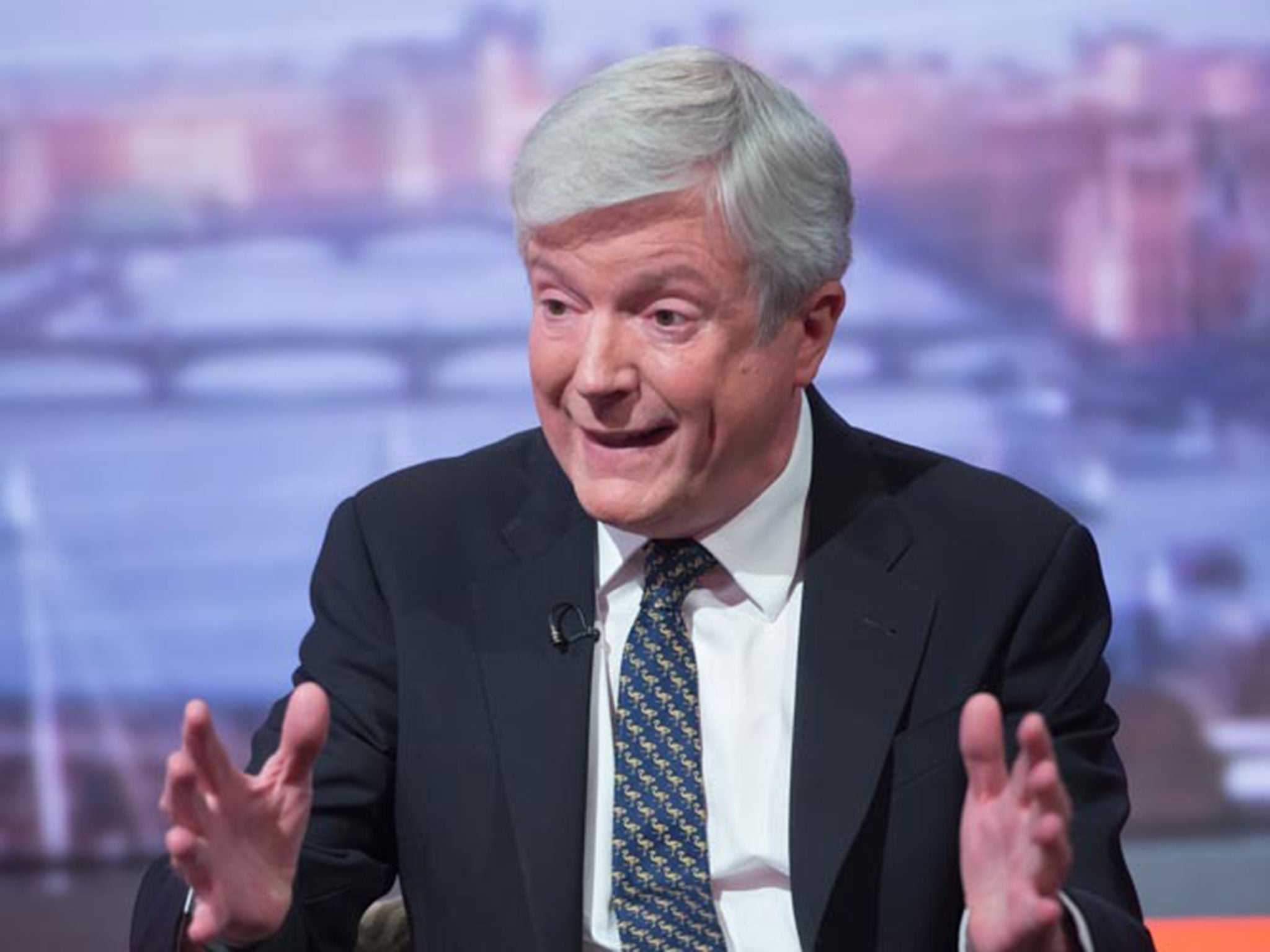BBC director-general Tony Hall: The Tories won't close us down
The BBC licence fee is good for another decade, he said

Your support helps us to tell the story
From reproductive rights to climate change to Big Tech, The Independent is on the ground when the story is developing. Whether it's investigating the financials of Elon Musk's pro-Trump PAC or producing our latest documentary, 'The A Word', which shines a light on the American women fighting for reproductive rights, we know how important it is to parse out the facts from the messaging.
At such a critical moment in US history, we need reporters on the ground. Your donation allows us to keep sending journalists to speak to both sides of the story.
The Independent is trusted by Americans across the entire political spectrum. And unlike many other quality news outlets, we choose not to lock Americans out of our reporting and analysis with paywalls. We believe quality journalism should be available to everyone, paid for by those who can afford it.
Your support makes all the difference.The BBC licence fee is good for another decade director-general Tony Hall said, as it emerged that Prime Minister David Cameron had threatened to “close down” the corporation in comments to journalists during the general election.
The BBC’s political editor, Nick Robinson, said that sources on an election battle bus had told him the Prime Minister had described a BBC story as “rubbish” and went on to say: “I’m going to close them (the BBC) down after the election.”
While some other journalists had seen it as a joke, Mr Robinson told The Guardian that BBC staff had interpreted it as a veiled threat, regarding it “as yet another bit of pressure”.
He added that he did not think the Conservatives wanted to scrap the BBC.
His claims were categorically denied by No 10.
“What really matters is the impact it has on other people,” he said. “Some people on the bus regarded it as funny but they generally didn’t work for BBC. The people who did [work for the BBC] regarded it as yet another bit of pressure and a sort of sense of ‘don’t forget who’s boss here’.
“The difference, of course, is that the prime minister is the prime minister. We didn’t know at the time, of course, that he would carry on, but given that was a possibility, given the timing of charter renewal… it’s quite a thing to say.”
Despite being under fire from the Government over costs, the embattled Lord Hall believes the licence fee still has another 10 years of life.
Everybody paying something results in producing “great services for a lot less” than a subscription model or other funding methods, he told the BBC’s Andrew Marr Show.
“I’ll go along with the argument that (the licence fee’s) got 10 years life in it,” he said, pointing out that a report from Culture Secretary John Whittingdale before the election had drawn the same conclusion.
Any reforms would be up to the Government, he said, adding that the “household tax” proposed by the Culture, Media and Sport Select Committee, is a “very interesting idea”.
They suggested the current £145.50 licence fee charge could be replaced by a new compulsory broadcasting levy which would be paid by all households, regardless of whether or how they watch TV.
“I don’t know whether that works or not,” Lord Hall said, adding that the corporation was not there to exist as a “market failure” public-service broadcaster.
He also insisted that the BBC’s audience think the case for the licence fee funding method “has gone up and has not gone down”.
“The licence fee has got to do is what the licence fee has continually done since it was first invented, which is to adapt to modernise,” he said.
He warned further savings have to be made within the corporation, saying he was “not at all happy” with the level of redundancy pay-offs managers were getting when he took office in 2013.
“I put a cap on that at £150,000 in the first couple of months and that must continue,” he said, adding that while the BBC now wants to cap them at £125,000, the Government was aiming for £95,000.
“If the Government reform, then we will have to think exactly about how we cap our pay-offs lower too,” he said.
Changes at the corporation will have cut costs by £1.5bn by the end of 2016 or 40 per cent of its cost base, he added.
Join our commenting forum
Join thought-provoking conversations, follow other Independent readers and see their replies
Comments